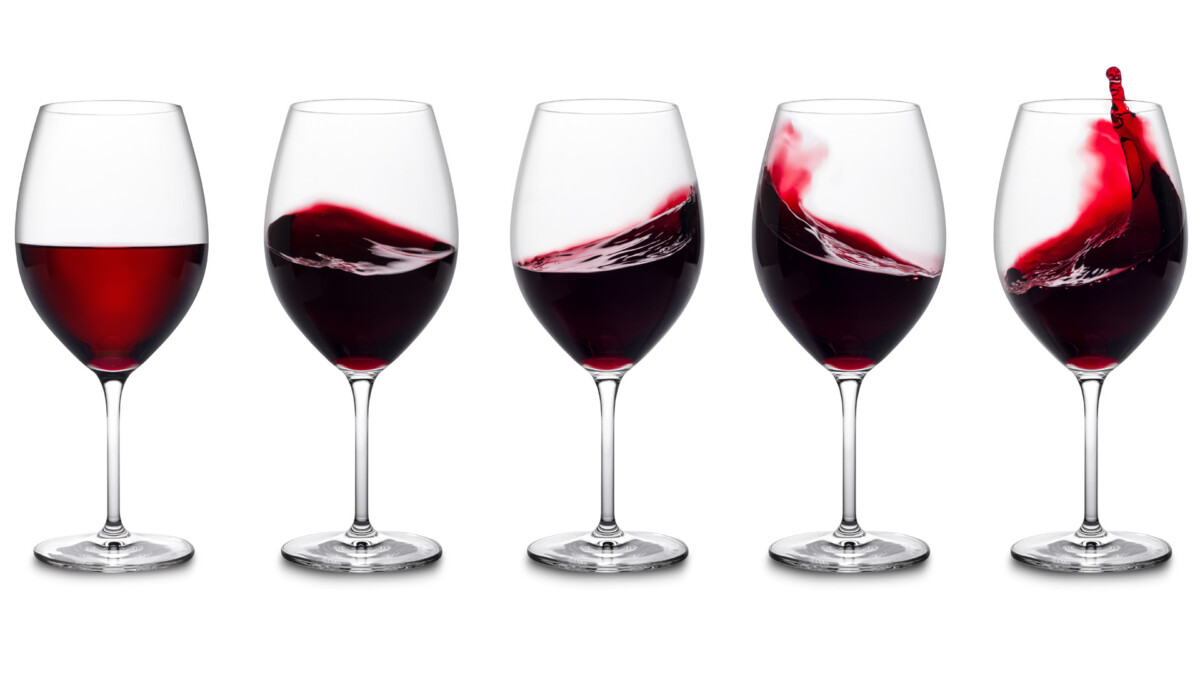
Wine lovers know that when selecting a bottle of wine, there are many factors to consider. The grape variety, the vintage and the origin all contribute to producing different flavour profiles—but what impact does the production process have? Surely most of us have heard about organic and biodynamic wines but may be less informed on the significant differences between them. That’s why we decided to explore these methods in further detail: so today, let’s take a deeper dive into French traditional conventional wine, organic wine, biodynamic wine and nature Wine by comparing their varying production processes! We hope you will gain insight from our article on how each one affects how much you’ll enjoy your selection. So grab a glass of your favourite cabernet sauvignon (or whatever tickles your fancy!), pop some popcorn for movie night or complete your workday with an informative read – it’s time to discuss the difference between French Traditional conventional wine, Organic wine, Biodynamic wine and Nature Wine!
Traditional Conventional Wine
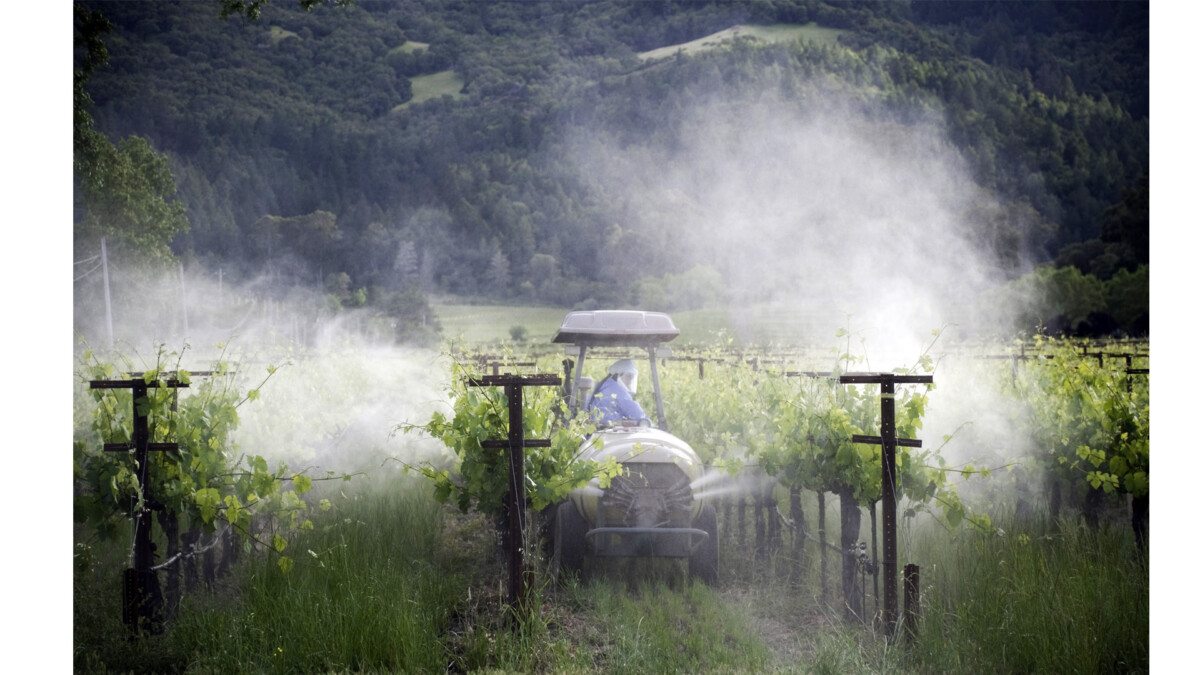
The production of conventional French wine can involve the use of chemical fertilizers and synthetic pesticides to protect the vines from pests, as well as herbicides to maintain the land. The grapes are then harvested by hand or with mechanical equipment and processed using sulfites, enzymatic stabilisers, added sugars the list goes on….
The industry standards and regulations around traditional conventional french wine are harder to monitor as currently there are no nutritional / ingredients labels required or visible on a bottle of wine, therefore the consumer is not able to determine what farming practices have been used, and or what has been added or the quantities, within the winemaking processing just by looking at the bottle. The good news is that in October 2023 these labels will become mandatory in France. Which will become more like food to indicate additives to the wine, however, you will not be able to see what pesticides have been used on the vines/grapes soil
Organic Wine:
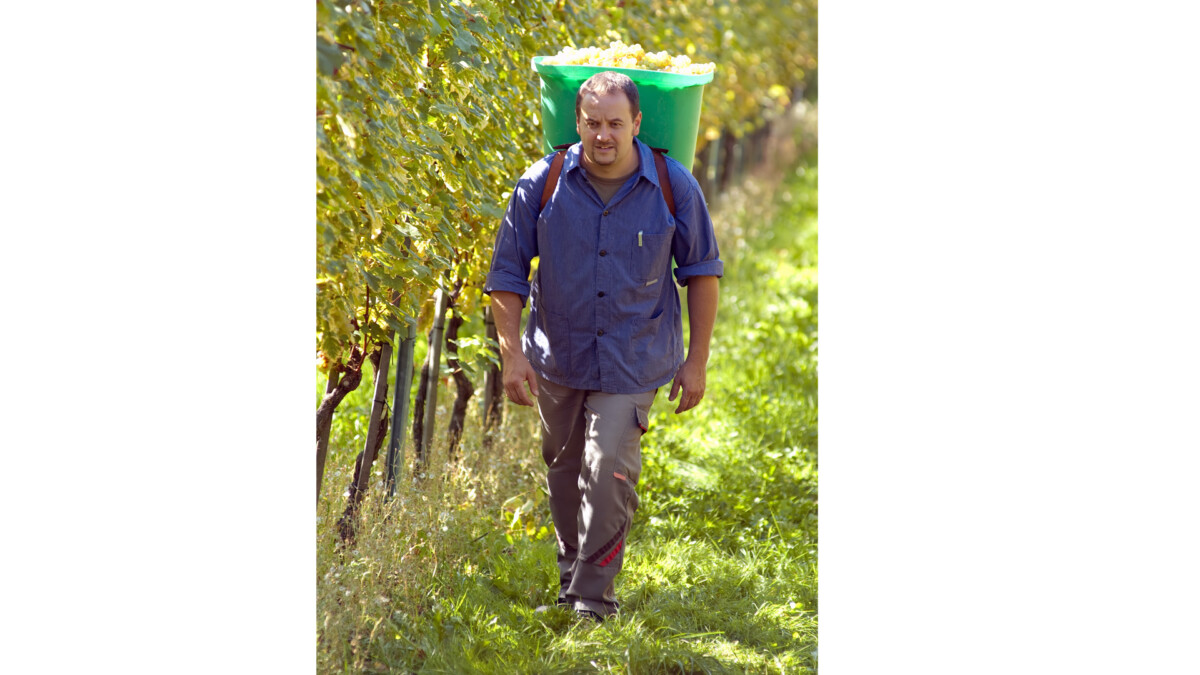
Certified Organic wine is produced using only organic farming practices which promote sustainability and protect the environment from chemical inputs. These wines are made without added sulfites, enzymes or other additives, relying instead on natural fermentation processes to develop flavour complexity. Organic vineyards are also typically managed using long-term crop rotation plans, cover crops, and composting to provide natural fertilizers. To obtain organic certification in France, producers must follow strict organic standards and the process for the winemaker to convert from standard winemaking to completely certified organic is 3 years, as it can take this long for the chemicals within the soil and vines to completely dissipate. Wines can only obtain organic certification after this period and approval from the Ministry of Agriculture. The logo symbol that is then given a green square with white font it would have the letters AB or a green leaf with stars around it, the green leaf is a European label
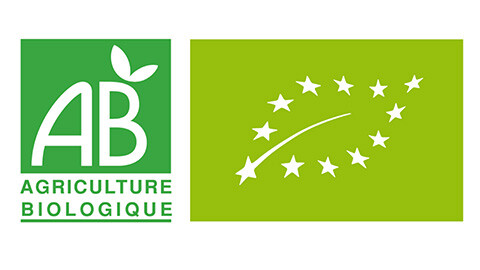
Biodynamic Wine:
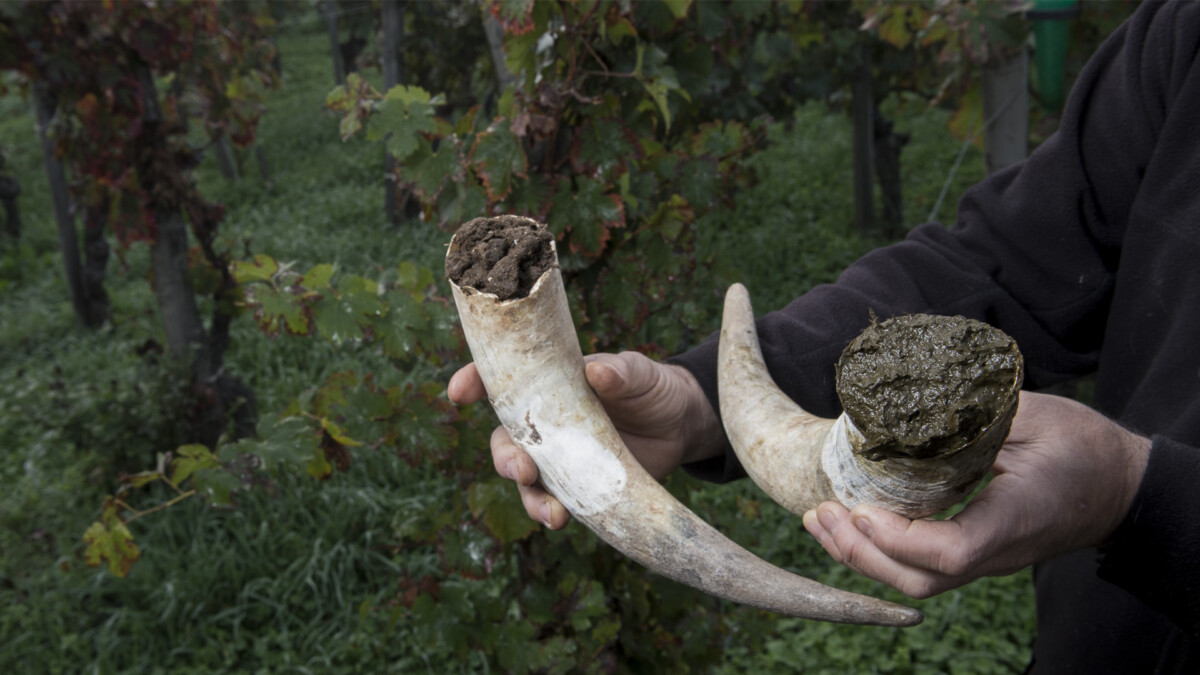
Biodynamic wines are a step beyond organic. The winemaker often will go for the organic certification process of 3 years as above, and then opt to go to the next step of another year of biodynamic farming practices, to be certified by the biodynamic federation Demeter International which is the only agricultural association that certifies biodynamic wines worldwide.
Austrian philosopher Rudolf Steiner developed biodynamic agriculture in the 1920s, based on the idea that all living things are connected and therefore must be kept in balance with one another for optimum health. Biodynamic winemakers use special preparations made from natural ingredients to restore and maintain healthy soils and vegetation as well as to enhance flavour complexity in their wines. They also strive to reduce the impact of their vineyards on the environment by using natural pest management methods, composting and minimal intervention winemaking practices. Additives like sulphites, enzymes or others are not used, they rely on ingredients from the vineyard instead. The logo symbol that is given for biodynamic wines is a green square with white font it would have the letters Demeter or a black half-moon with stars around it the logo for Biodynamic, see above, is the words Demeter or Biodyvin written on a white background.
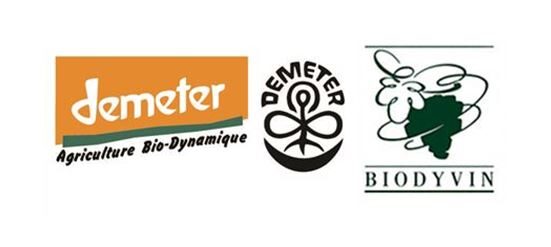
Nature Wine
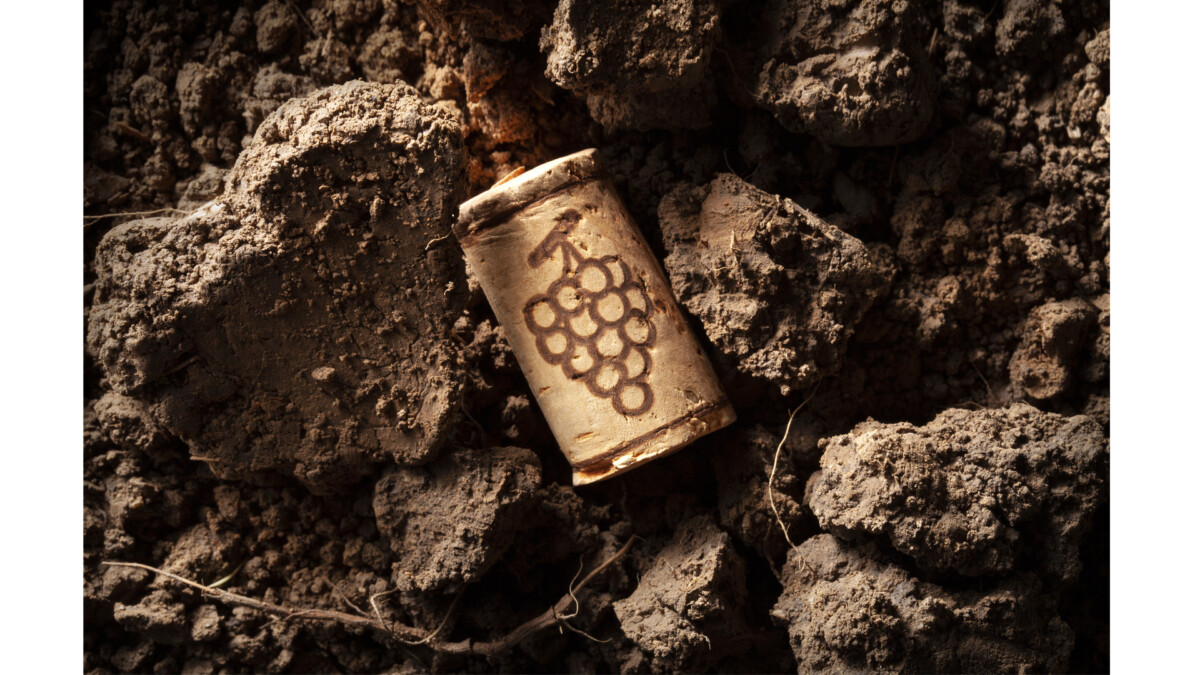
Lastly, there are wines also commonly known as Natural Wine/ Raw wine / LoFi wine / Low intervention wine
Nature wines takes both organic and biodynamic farming practices one step further. Nature Wines have stricter regulations than Biodynamic or Organic
The production of natural wine takes an even more extreme view on minimal intervention than organic and biodynamic wines to do; it is generally produced using grapes that have not been treated with any chemical fertilizers, synthetic pesticides or herbicides and are grown without any irrigation. The grapes are then harvested by hand and processed with minimal intervention (no added sulfites, enzymatic stabilisers etc), meaning that the wines produced will be less predictable due to the natural variability between vintages.
Nature wines are made with minimal intervention and limited human contact, focusing on natural processes so that the grapes express their true terroir. Nature wine producers typically use organic farming methods and often use biodynamic practices. Nature wines have no added sulfites or other additives, allowing the unique characteristics of the grape to shine through while preserving its aromas, flavours and nuances. Nature wines are often bottled unfiltered, unclarified, or with minimal filtering. The certification for these wines is called Vin Methode Nature (Natural Wine Certified), which has a logo of a black round written in white letters Vin Methode Nature
This logo verifies that the wine contains no added sulphites and is made from organic grapes. the grapes must be hand-picked. The yeast necessary for fermentation must be that found in the vineyard and/or winery, not bought in. Nature wines are a type of organic wine made with minimal intervention in the vineyard and winery.
This type of wine has a unique taste, texture and smell that come from the natural fermentation process and the grapes used to make it. Nature wines are often perceived as having a fuller flavour than traditional wines due to their lack of manipulation during production. Nature wines must adhere to stringent EU regulations in order to be labelled as such. It is important to note that nature wines may still contain a minimum level of sulfites, depending on their origin and type.
To qualify as a Vin Méthode Nature a wine has to be made from organic vines/grapes one of the major organisation certifying this fact.
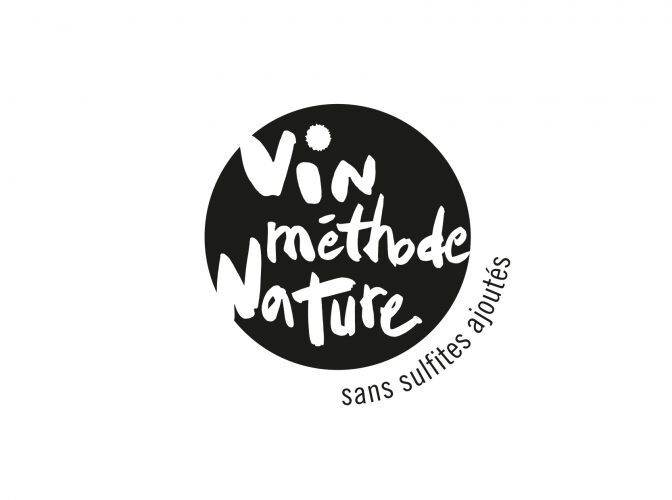
To summarise:
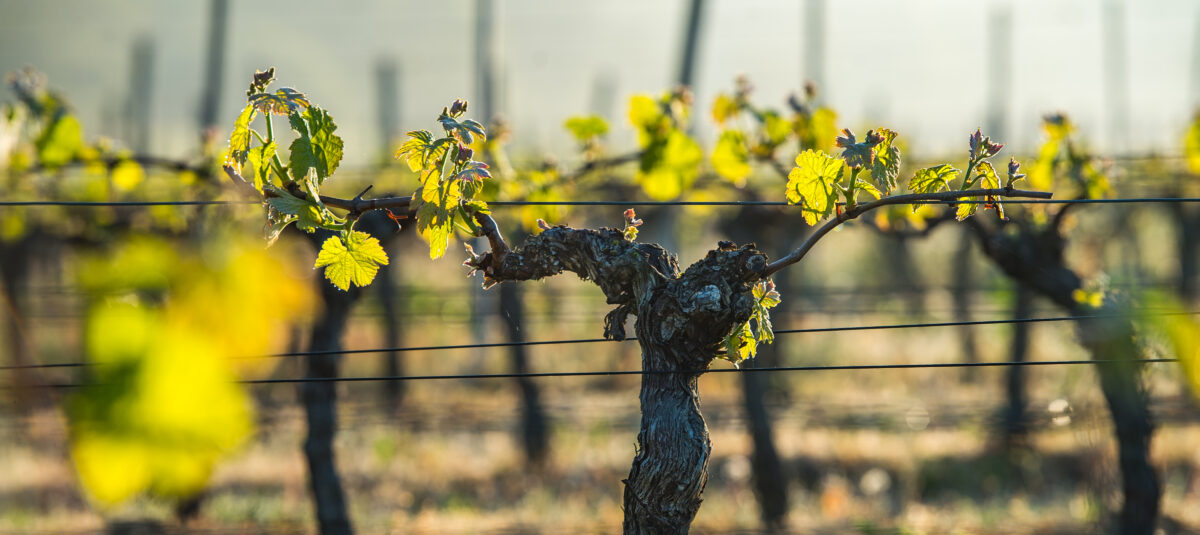
the differences between Traditional conventional wine, organic wine, biodynamic and Nature wines comes down to their production processes. Conventional wines often are produced with chemical fertilizers and synthetic pesticides to protect the vines from pests (and no rigorous rules around these areas, therefore little – no limitations), while organic wines use natural means of pest control such as beneficial insects and plant extracts. Biodynamic wines involve principles from both ancient philosophies and modern science, and natural wines are produced with minimal intervention using grapes that have not been treated with any chemical fertilizers.
Traditional wine typically contains sulfites, concentrates, added sugar along other additives that currently are not listed on the bottle. Organic wines are made without any synthetic chemicals or added preservatives, while biodynamic wines are similar to organic but seen as the next level up, and are produced using a holistic approach to nature / the planet. Nature wine is made from organically-grown grapes and is not filtered or clarified in any way. It does not contain added preservatives or sulfur dioxide. It is also made without any added sugar or other additives. This type of wine has a unique taste, texture and smell that come from the natural fermentation process and the grapes used to make it. Nature wines are often perceived as having a fuller flavour than traditional wines due to their lack of manipulation during production. Nature wines must adhere to stringent French regulations in order to be labelled as such. It is important to note that nature wines may still contain a minimum level of sulfites, depending on their origin and type.
What is the impact on planet of Traditional wines v's organic, biodynamic and nature wines?
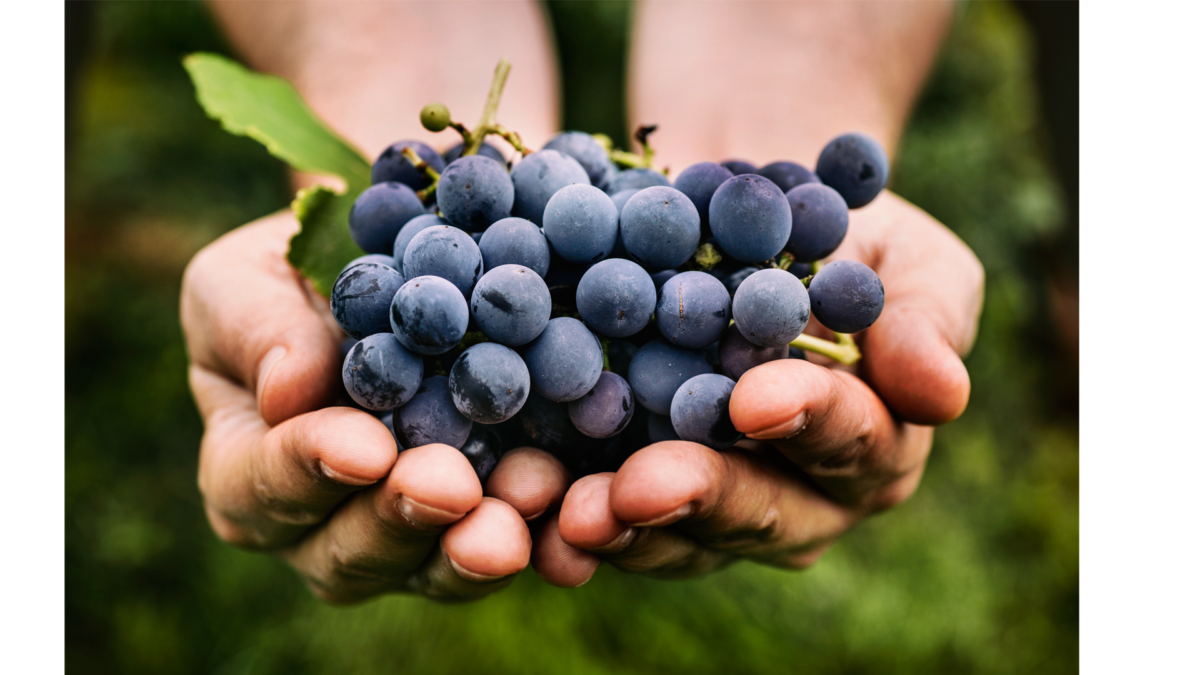
The major difference between traditional, organic, biodynamic and natural wines is their impact on the environment. Traditional wines are produced with chemical fertilizers and synthetic pesticides which can harm soil health, water quality and wildlife habitats. Organic wines are made with natural means of pest control such as beneficial insects and plant extracts which help to protect the natural environment. Biodynamic wines employ principles from both ancient philosophies and modern science, which helps to promote sustainable agriculture. Natural wines are produced with minimal intervention using grapes that have not been treated with any chemical fertilizers, thus reducing the impact on the environment.
conclusion

Therefore just looking at the label and Certifications on a bottle of wine (usually on the reverse of the bottle) helps you to understand the impact your bottle of wine has had on the planet. That is why organic/biodynamic/natural wines are becoming increasingly popular due to their sustainable production methods, and more conscious consumers looking for a greener alternative.
In addition, organic, biodynamic, nature wines tend to have more complex flavours since the terroir of the grapes will be more apparent. As with any type of wine, it is important to choose a bottle that you like and will enjoy drinking.
Overall, Organic / Biodynamic/ Natural wines provide an excellent alternative for those looking for a greener choice and more complex flavours.
Happy tasting!